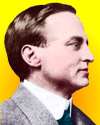
On 22 Aug 1868, Willis R. Whitney was born, an American chemist who founded the General Electric Company’s research laboratory. As research director there, he stimulated pioneering work. Whitney is known as the “father of basic research in industry” because it became a model for industrial scientific laboratories elsewhere in the U.S.
In 1921, The Journal of Industrial and Engineering Chemistry published Whitney’s thoughts about The Biggest Things in Chemistry. Having just received the Perkin Medal, Whitney began by acknowledging the research work of the great English research chemist, Sir William Perkin, and reflects on comparisons between the educational path each of them had taken.
In the remainder of this interesting piece, Whitney reviews what he regarded as the Biggest Things in Chemistry for his era. Reading this, one can see where the range of fields in chemistry stood then, and contemplate how it stands now, about a century later. Well worth the time to read.

On 22 Aug 1974, Jacob Bronowski died. He was a Polish-British mathematician and science writer who eloquently presented the case for the humanistic aspects of science as the writer and presenter of the BBC television series, The Ascent of Man. Today's book pick is: The Ascent of Man, by Jacob Bronowski. Although many years have passed since those excellent broadcasts, this companion book will make fulfilling reading whether you saw the series back then, or are reading his thoughtful work for the first time.
Bronowksi’s classic traces the development of human society through our understanding of science. As one of the first works of “popular science,” readers will find it illuminates the historical and social context of scientific development in a highly accessible style, Dr. Bronowski discusses human invention from the flint tool to geometry, agriculture to genetics, and from alchemy to the theory of relativity, showing how they all are expressions of our ability to understand and control nature.
This fascinating work should be on everyone’s bookshelf. It is certainly on the Webmaster’s shelves, and whenever dipped into, it is rewarding - still fresh, and thought stimulating.
It is available from Amazon, typically about New from $65.32. Used from $1.95. (As of earlier time of writing - subject to change.)
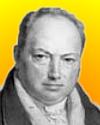 | First get a clear notion of what you desire to accomplish and then in all probability you will succeed in doing it. |
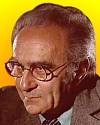 | Science is a great many things, … but in the end they all return to this: Science is the acceptance of what works and the rejection of what does not. That needs more courage than we might think. |
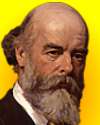 | To say that, a scientific man puts forth a theory and, supports it and adheres to it, not because he thinks it true, but because he wishes it to be true, is the same thing as saying that he is not a seeker after truth at all, and is therefore a traitor to his profession. |
| Before you look at today's web page, see if you can answer some of these questions about the events that happened on this day. Some of the names are very familiar. Others will likely stump you. Tickle your curiosity with these questions, then check your answers on today's web page. | |
| Births | |
 | Denton Cooley (left), Denis Papin, Paul Gottlieb Nipkow and were each born on 22 Aug, though in different years. Not in the same order, they were notable for: inventing the television scanning principle; inventing the pressure cooker; being the first to implant an artificial heart in a human. Can you match each scientist to his claim to fame? |
| Deaths | |
 | Sir Oliver Lodge (1851-1940) was a British physicist who perfected the “coherer.” What was the function of the “coherer”? |
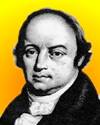 | Franz Joseph Gall was a German anatomist and physiologist who originated phrenology What is phrenology? |
| Events | |
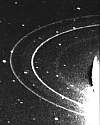 | On 22 Aug 1989, a new feature of the planet Neptune was discovered. What was this feature? |
 | On 22 Aug 1962, The Savannah completed her maiden voyage from Yorktown, Va., to Savannah, Ga. What was the source of power for this ship, a world's first? |
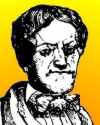 | On 22 Aug 1787, inventor John Fitch demonstrated his steamboat on the Delaware River to delegates of the Continental Congress. What was its top speed in mph? |
Fast answers for the previous newsletter for August 21: Gerhardt = classification of organic compounds; Murdock = first to make extensive use of coal gas for illumination; Stas = determinations of atomic weights • morphed from the word googol for the huge number given by a 1 followed by 100 zeros • heat, energy transformations • astronomy, his limit refers to the mass of a white dwarf star • carbon dioxide • Neptune.
 If you enjoy this newsletter, the website, or wish to offer encouragement or ideas, please send feedback by using your mail reader Reply button.
If you enjoy this newsletter, the website, or wish to offer encouragement or ideas, please send feedback by using your mail reader Reply button. Your click on a Facebook, StumbleUpon, or other social button on the site webpages is also a welcome sign of appreciation. Thank you for using them.
© This newsletter is copyright 2020 by todayinsci.com. Please respect the Webmaster's wishes and do not put copies online of the Newsletter — or any Today in Science History webpage. (If you already have done so, please remove them. Thank you.) Offline use in education is encouraged such as a printout on a bulletin board, or projected for classroom viewing. Online, descriptive links to our pages are welcomed, as these will provide a reader with the most recent revisions, additions and/or corrections of a webpage. For any other copyright questions, please contact the Webmaster by using your mail reader Reply button.
--
If you do not want to receive any more newsletters, Unsubscribe
To update your preferences and to unsubscribe visit this link
Executive Real Estate Business Class
-
"It was like a man with wings. It wasn't like anything you'd see on TV or in a monster movie." ...
About the publisher
Search This Blog
Blog Archive
-
▼
2020
(1542)
-
▼
August
(192)
- HISTORY: Lessons from the latest March on Washington
- New This Week on History News Network
- Discover lost cities with Nat Geo History. Subscri...
- On This Day for August 31 - Confederates evacuated...
- Newsletter for Monday 31 August.
- Face Masks Make you dumb (compliant) Economic des...
- August 31: Malaya Gains independence, Princess Dia...
- FAMILY: How to get your kid to wear a mask
- Roman numerals | Ancient empires | The battle of C...
- On This Day for August 30 - Historic spaceflight b...
- Newsletter for Sunday 30 August.
- August 30: Crossbow Outlawed, Nehru Requests Indep...
- The Compass: London
- On This Day for August 29 - New Orleans hit by Hur...
- Newsletter for Saturday 29 August.
- August 29: Treaty of Nanking, Second Battle of Bul...
- CORONAVIRUS UPDATE: These promising treatments are...
- PHOTOGRAPHY: Lives that matter, from the pietà to ...
- The Horrifying True Story Behind "Candyman," The Y...
- The Roundup Top Ten from History News Network
- On This Day for August 28 - Civil rights march on ...
- Newsletter for Friday 28 August.
- August 28: Tom Thumb Races a Horse, Scientific Ame...
- ANIMALS: When baby wombats become your roommates
- Give your kids the world! Subscribe now.
- Create remote resiliency with Britannica Kids
- On This Day for August 27 - The death of Titian, M...
- Newsletter for Thursday 27 August.
- Lockdown for you but not for the politically corre...
- August 27: Krakatoa Erupts and the End of Lord Mou...
- YOUR WEEKLY ESCAPE: Inside the world of transhuman...
- SCIENCE: Behind the hurricanes, wildfires, and bla...
- Demystified: What Does Gaslighting Mean?
- The Latest News from History News Network
- On This Day for August 26 - Joan of Arc's arrival ...
- Newsletter for Wednesday 26 August.
- Fear fatigue is more dangerous than COVID-19 plus
- August 26: Longbows, Cannons and Morris Mini-Minors
- For Your Eyes Only: America’s Spying Secrets
- 50+ Vintage Pictures Of Your Parents Being Cooler ...
- TRAVEL: Waiting for a silver lining
- On This Day for August 25 - Paris liberated, Sean ...
- Newsletter for Tuesday 25 August.
- August 25: French Arrive in Louisiana, James Cook ...
- HISTORY: Why the U.S. Postal Service matters
- Even Life-Long Learners Need Back-to-School Savings!
- Experience a 360-degree virtual tour of the Nat Ge...
- New This Week From History News Network
- On This Day for August 24 - Eruption of Mount Vesu...
- Newsletter for Monday 24 August.
- GeoEngineering Massive Drought WildFires + More Ma...
- August 24: Alaric I Sacks Rome, British Capture Wa...
- FAMILY: How you can support your kid's teachers—an...
- Genghis Khan | Edward the Confessor | The Spanish ...
- On This Day for August 23 - William Wallace execut...
- Newsletter for Sunday 23 August.
- August 23: 1st US Women's Rights Convention, Bin L...
- The Compass: U.S. National Parks
- On This Day for August 22 - Wars of the Roses ende...
- Newsletter for Saturday 22 August.
- August 22: Wars of the Roses Ends, Chennai Founded...
- CORONAVIRUS UPDATE: Your employer could require yo...
- PHOTOGRAPHY: Capturing a muted Russia
- The Unsung Heroes Who Fought For Women's Voting Ri...
- The Roundup Top Ten from History News Network
- On This Day for August 21 - French defeated at the...
- Newsletter for Friday 21 August.
- YOUR WEEKLY ESCAPE: A million people live in under...
- August 21: Mona Lisa is Stolen, the 50th US State ...
- ANIMALS: Soft and virus-y, the mink with COVID-19
- On This Day for August 20 - Viking 1 launched, Eer...
- Total Exposé! Watch the 2nd Plandemic Movie "InDoc...
- Newsletter for Thursday 20 August.
- August 20: The Dutch East India Company, Sun Yat-s...
- A Champion Will Be Crowned on 'Forged in Fire' Ton...
- SCIENCE: The robots have arrived
- The Latest News from History News Network
- On This Day for August 19 - Attempted coup against...
- Newsletter for Wednesday 19 August.
- August 19: Cease-Fire in the Iran-Iraq War and Gor...
- TRAVEL: Will new tech make flying safer now?
- Sail along with Ancient Explorers w/ Nat Geo History!
- On This Day for August 18 - Nineteenth Amendment r...
- Newsletter for Tuesday 18 August.
- August 18: Wilson's Ill-fated Neutrality, American...
- HISTORY: Breaking 'substantial barriers' with Kama...
- New This Week On History News Network
- On This Day for August 17 - Indonesia's declaratio...
- Newsletter for Monday 17 August.
- State of Tennessee orders Home visit checks on ALL...
- August 17: Division of Korea, Indonesian Independe...
- FAMILY: Preparing for this unusual school year
- Medieval baby names | Attila the Hun | Pederasty i...
- On This Day for August 16 - Leonel Fernández Reyna...
- Newsletter for Sunday 16 August.
- August 16: Deadly Chaos in Calcutta and the Last C...
- The Compass: New Zealand
- On This Day for August 15 - Independence for India...
- Newsletter for Saturday 15 August.
- August 15: The Mayflower Sets Sail, Indian Indepen...
-
▼
August
(192)
-
Blogroll
-
About
HistoryFact










0 comments:
Post a Comment